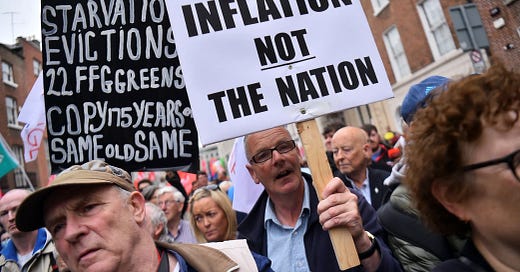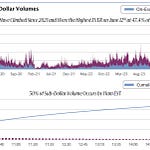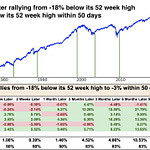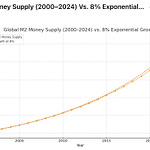To investors,
The last three years have been economically volatile. We had the pandemic-induced liquidity crisis of March 2020, a face-melting rally of financial assets that created an asset bubble, a legion of drunk consumers who helped usher in a 40+ year high in inflation, and a Fed-mandated destruction of financial asset prices to close out the three year run.
Chaos. Uncertainty. Volatility.
Choose whatever words you want to describe what just happened, but it was a hell of a ride. The problem is that the whiplash across markets and economies will have a lasting impact on consumers and investors, especially in younger generations. You would have to be at least 50 years old to remember the last time the United States dealt with high inflation. This means more than 200 million Americans are experiencing this phenomenon for the first time.
So where does this impact show up?
In the short term, individuals start to change their consumption patterns. A recent survey by Trustpilot highlights just how significant this change is for Valentines Day this year. Christine Mui writes:
“If you’re excited (or resigned) about the impending arrival of Valentine’s Day, there’s one wrinkle to this year’s holiday you’ll have to deal with — inflation. High prices have helped 41% of Americans decide love isn’t in the budget, and another 23% are still on the fence about participating in Valentine’s Day festivities this year, according to a recent survey by the review platform Trustpilot.
Instead of paying for the usual chocolates and dinners, nearly half of Americans reported plans to put what would have been their Valentine’s Day spending toward living expenses such as gas, rent and groceries, the survey explains. Even those exchanging gifts say they expect to cut back — with two-thirds of them intending to spend at least 10% less this year than in previous celebrations due to inflation fears.”
Some may argue that this consumption behavior change is only short-term though. Unfortunately, there is an increasing amount of research that shows a connection between inflation and stress. Kara Nassour, a licensed professional counseler, recently explained to Sarah Fielding how this potentially works:
“It decreases the power of the money you have, which can increase stress around finances. Financial stress can create chronic anxiety, exhaustion, strained relationships with partners, and prevent a person from getting housing, education, or healthcare. Poverty itself can be traumatic.”
“Most people don’t know why it [inflation] happens, how to stop it, or how fast it will rise. This makes it difficult to plan for the future or save money for future purchases like college or a home. In ‘hyperinflation,’ the value of money drops so quickly that people start withdrawing from their bank accounts and buying goods to sell later because they’re afraid their savings will become worthless. That leads to an increased sense of instability, anxiety, cynicism, and loss of trust in the government.”
This isn’t rocket science. Inflation causes financial problems. Financial problems lead to stress. Stress is bad for you. If inflation subsides, some will argue that the financial problems and ensuing stress will subside as well.
I’m not sure that is true. Think of it this way…











